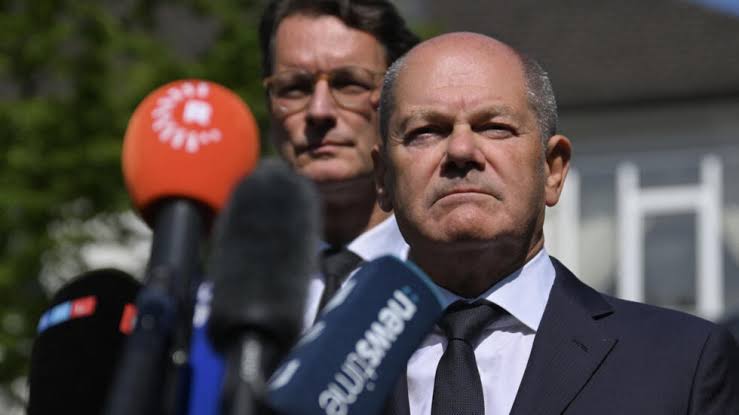During the budget debate in the Bundestag, Chancellor Olaf Scholz criticized opponents of the migration policy, which became the central focus of the discussion between him and those opposing the current approach to migration.
Scholz vehemently criticized the Union bloc’s stance on migration, directly targeting the Christian Democratic Union (CDU) leader Friedrich Merz. “You are the type of politician who believes that giving an interview to Bild am Sonntag will genuinely resolve the migration issue,” Scholz asserted. He highlighted that Merz showed little genuine concern for the matter, noting, “He spends so much time in editorial offices that he seems to have forgotten the proposals he actually made.”
These sharp criticisms arose amid the breakdown of migration discussions involving the government, states, and political parties, which failed to reach a consensus on proposals to curb illegal immigration. Merz and the Union Bloc emerged as the most vocal opponents of the current migration policy, advocating for stricter measures, particularly the implementation of border rejections. However, this proposal faced significant opposition from the Traffic Light Coalition parties, especially the Green Party, which argued that it contravened European Union law.
The rift between the government and the union intensified after the collapse of the migration talks. Merz called on Scholz to dismantle the Traffic Light Coalition, but the chancellor directed his fierce criticism at Merz, describing his performance as theatrical. Scholz stated, “It was good to reach common solutions on the migration issue, and we never close the door; you can always come back.”
The chancellor outlined the federal government’s perspective on the significance of migration for Germany, particularly from an economic standpoint. “No country can experience economic growth with a declining working population. We are a nation that provides refuge to those facing political persecution and fleeing for their lives.”
According to Scholz, German law mandates that the country must save and protect the lives of endangered refugees, a principle that is non-negotiable. However, he emphasized that Germany must decide who is granted entry into the country.
Scholz emphasized the importance of immigration for the economy, noting that it contributes to the revitalization of the German economy. He likened Germany’s need for immigrants to that of the United States, Australia, and Canada, where these countries benefit from immigration to create growth opportunities. “This is the case there, and it is now possible in this country with the laws we have proposed. Anything else would lead us into economic difficulties,” he stated.





